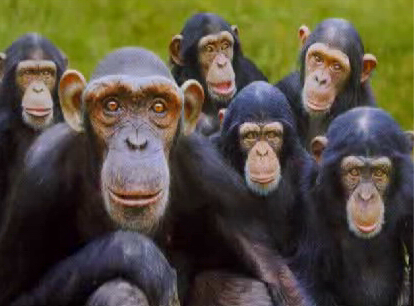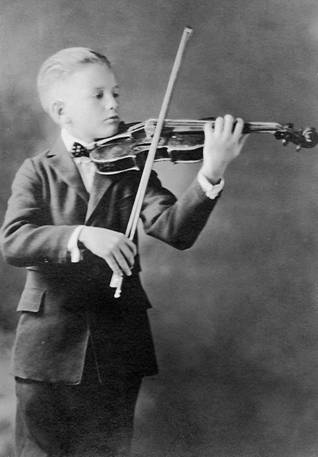From counting out the exact change for a coffee cup to planning a retirement fund, numbers influence almost every aspect of one’s life. However, numbers have a much deeper influence on the world around us, often in ways that we don’t even realize. A mathematical constant determines what we find beautiful and a number decides how many friends we have; mathematics is written into our genes and here are just a few of the fascinating ways it changes our lives.
1.
Dunbar’s Number
Certain communities survive largely unchanged over long periods of time while other tribes or even modern neighborhoods collapse into chaos and hostility. We keep in touch with some friends and co-workers and ignore others, apparently for no reason. Even corporations seem to have trouble managing workers after, hiring a certain amount of people. Seemingly unrelated, these topics are all connected through one number.

Monkey or human, turns out our communities aren’t that different.
Researchers claim that human social functions are hardwired around the number 150. Looking at primates scientists realized that their social groups are larger if the monkey’s neocortex is larger. By computing research done on 38 groups of monkeys Professor Dunbar estimated the human’s ability for social connections tops at around 150. That means we can mentally manage approximately 150 relations. Any time we are in a situation where we have to deal with more people than 150 we tend to be less and less efficient. For example, if you were to plan a party for 150 people you could do it, easily remembering everyone and knowing who they would like to sit next to or who they would dislike. However, if you have to plan a party for 300 or 500 people you will most likely forget a lot of names and get confused about where “Bob” or “Jane” should sit.
There are several other examples which prove that after any community reaches more than 150 members, people stop caring about each other. For example, crime becomes a serious problem once a town grows above 150 households. Throughout history, army units were almost always composed of 150 soldiers as this seems to allow for more control and a closer knit group. Even companies that have 150 or less employees in any one office are more productive than corporations that have huge offices.
2.
Golden Ratio
This number is the single most widely encountered constant in the whole universe. Not only do humans use it in fashion, furniture, art, music, and even economics, but the number appears in the human body, nature and even in the way the Milky Way is shaped.

First discovered by the Greeks the Golden Ratio is found in all of nature and all humans are mentally programmed to find it beautiful. There are numerous books explaining how this works and why the mathematics of beauty is a pretty much an exact science. Our face as well as a healthy human body are both proportional according to the Golden Ratio.
The number comes from a series of increasing spirals where the space between each spiral is exactly 1.618-times the length of the space that preceded it. It’s a constant that for some reason seems to be a universal law, guiding everything ever created, from the vines inside plants to the way our bones are structured. If you want to use a PC analogy, the Golden Ratio is the 1 and 0 God used to program the universe.
3.
The Secret of Success
According to recent studies, talent is not really something you are born with. According to Malcolm Gladwell all very successful people were made through practice, including Bill Gates and the Beatles. While this is not necessarily surprising, what is interesting is that we can tell exactly the number of hours anyone has to put into a subject before they can master it. Scientist claim that after 10,000 numbers anyone could be an expert in anything.

Genius might very well just be a lot of practice
The Beatles, before reaching international fame spent several years playing for 12 hours or more in German clubs. The band manager and the Beatles themselves admitted that this period of intense practice offered them the foundation necessary to build their style. Without the 10,000 hours of practice the Beatles could have never been as influential as they were.Bill Gates also spent years of his youth practicing programming at one of the very few private high schools that had access to a computer lab. It was a lucky coincidence that he went to that particular school, but that coincidence allowed him to clock in approximately 10,000 hours of computer time at a younger age than most of his peers.
The same story is repeated with Steve Jobs who also had the chance to start working with computers while still in high school. In fact after analyzing the lives of pretty much everyone associated with the dotcom revolution we can find the same story over and over again. All the people who changed the field of I.T. from the ground up had access to a PC at an earlier age.
The conclusion is simple, if you want to succeed at anything, make sure you spend 10,000 hours doing it.







